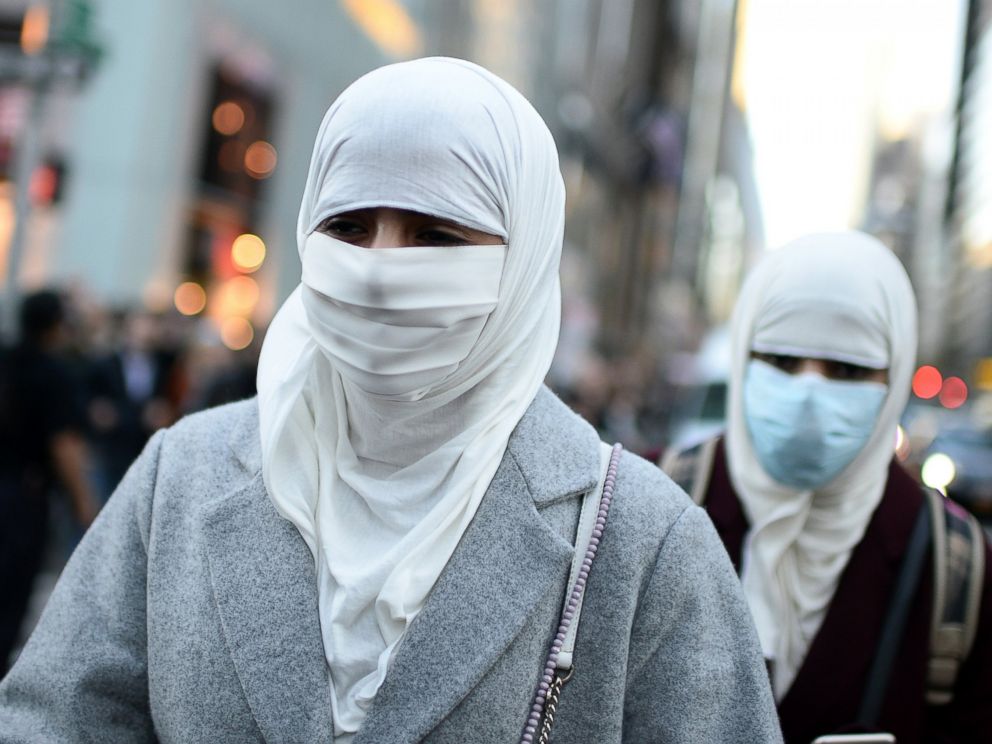
RNA - A Muslim woman in Ann Arbor, Michigan, was allegedly threatened by a man who said he would set her on fire with a lighter if she didn't remove her religious head covering, or hijab.
Another Muslim woman in Columbus, Ohio, reported to police that a man verbally attacked her and her family while they were stopped at a traffic light, shouting, "Go back to your **** country."
Other adherents of Islam in the U.S. have reported having their headscarves ripped off or ethnic slurs hurled at them in the days since the Nov. 8 election of Donald Trump, and more than 200 bias incidents — mostly against blacks, immigrants and Muslims — were reported over the past week by the Southern Poverty Law Center.
Trump said Sunday he was surprised and saddened to hear about hate crimes, racial slurs and threats reportedly made by some of his supporters since the election and told them to "stop it."
"I am so saddened to hear that," he said in an interview Sunday with CBS News' "60 Minutes." He added that the many demonstrating against him since his election should not be "afraid" of his presidency.
But anti-discrimination advocates say Trump's positions as a candidate have emboldened some who are prejudiced against Muslims to voice or act out their biases.
On the campaign trail, Trump called for barring all foreign Muslims from entering the U.S. His recent appointment of conservative firebrand and former Breitbart CEO Steve Bannon as chief strategist and senior counselor has drawn heated criticism from anti-discrimination and Muslim groups.
Nevertheless, some Muslim political and community activists told ABC News that they see Trump's election as an opportunity for greater political participation by the 1 percent of Americans who are Muslim and that they look to African-Americans' civil rights struggles as a model.
"Donald Trump is who he is, and he's our president. I'm not going to say he's not my president. He is my president," said Mirriam Seddiq, a Virginia-based criminal defense attorney and the founder of the American Muslim Women Political Action Committee, which she launched earlier this year. "The things we have to worry about really have to go beyond our own fears of being singled out by this administration."
"There have been so many people fighting this fight against injustice … far, far longer than we have as a group," she said. "You can take off a hijab. Black people can't take off their skin."
"I don't want to be the group that as soon as somebody targets us, we run and hide," she said.
Ibrahim Hooper, a spokesman for the Council on American-Islamic Relations, agreed that "people need to step up their civic participation. I think Trump was elected because a lot of people stayed home."
He said it is equally important that American Muslims continue to report bias incidents as a way of asserting their rights.
"You stand up for yourself, you stand up for your faith, you stand up for social justice and civil rights, and you let people know what's actually going on on the ground," he said.
Like Seddiq, Hooper said bias against Muslims must be viewed alongside the history of discrimination against other minorities, including African-Americans and Jews.
"It's the same phenomenon that has to be challenged," he said.
But seeing the need for Muslims to become more politically active doesn't mean many don't feel fear, some activists said.
847/940